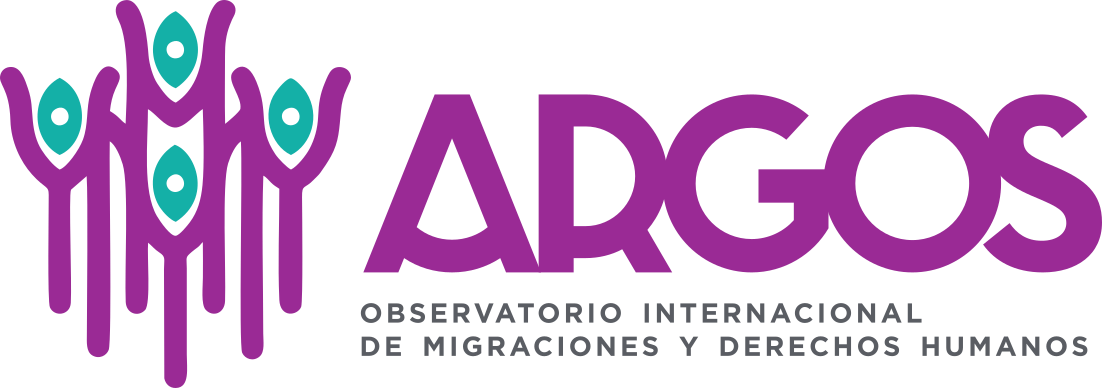Deliberately promoted policies, mainly in the economic sphere, and neocolonial practices are, among others, the main causes of migration in the Americas, especially in countries such as Venezuela and Colombia, which have experienced a continuous migratory flow in both directions of the border shared by the two countries.
Academics and specialists agreed on this argument during the development of the webinar “Migratory Flows in the Americas: Structural Causes and Challenges”, an event parallel to the 47th session of the United Nations Human Rights Council and co-organized by ARGOS – International Observatory on Migration and Human Rights; the American Association of Jurists (AAJ) and the International Association of Democratic Lawyers (IADL).
Micòl Savia, permanent representative of IADL to the UN in Geneva and ARGOS researcher, explained in her introductory remarks that neoliberal measures and interference strategies condemn millions of people in the American continent to poverty and exclusion.
The jurist suggested that in order to rigorously address the issue of migration, the structural causes that force hundreds of thousands of people to leave their homes and risk their lives in search of new opportunities must be identified, analyzed and denounced.
“The structural causes of migration and forced displacement are too often neglected,” she emphasized.
Armed conflict and Colombian migration
In the case of Colombia, the migration phenomenon is intrinsically related to the historical armed conflict and the implementation of military security plans, such as the so-called Plan Colombia, according to the analysis of Giovanni Libreros, a researcher at Colombia’s Center for Thought and Political Dialogue.
Starting in the 1990s, the escalation of this conflict led to a significant wave of migration of Colombian citizens to Venezuela, said Libreros.
However, he pointed out that the continuous and “two-way” flow of Colombian-Venezuelan migration for economic reasons, the Colombian conflict and Latin American geopolitical interests has been present since 1950.
Citing figures from state bodies and international agencies, Libreros stated that Colombian migration has been directed mainly towards Venezuela (33.23%), followed by the United States (27.82%) and Spain (12.82).
“Venezuela continues to be the first country of reception of Colombian emigrants […] The migration of Venezuelans to Colombia does not compare with the migration from Colombia to Venezuela. Although the current numbers of Venezuelans who have migrated to Colombia are high, if we look in historical terms, Venezuela has been a receiving country of Colombian migration”, he expanded.
A recent phenomenon
Venezuela has historically been a recipient country of migrants; however, the oil country has experienced in recent years an atypical migratory phenomenon, mainly to countries such as Colombia, Peru and Ecuador.
From Caracas, Giordana García, researcher of the Non-Governmental Organization Sures, argued that the Venezuelan migration is a migration induced by the current economic crisis in the country, derived from the application of a scheme of unilateral coercive measures.
“It is not political, so it is far from being a refugee crisis,” she emphasized.
The researcher denounced that, to date, more than 100 formal unilateral coercive measures and another 300 informal ones have been applied to Venezuela. Likewise, she denounced the confiscation of assets abroad and the blocking of more than 7 billion dollars of the Venezuelan State in international banks.
Last February, at the conclusion of a visit to Venezuela, the UN Special Rapporteur on the negative impact of unilateral coercive measures on the enjoyment of human rights, Alena Douhan, denounced the “devastating effect” of these measures on the Venezuelan population.
The UN expert noted that the sanctions have exacerbated the Venezuelan economic situation, and their application would have limited the country’s income by 99%. Among other consequences, this situation has led to an increase in the number of Venezuelan migrants.
According to Giordana García, Venezuelan migration is also induced through an activist discourse with political purposes and economic objectives.
In this sense, the Sures researcher questioned the figures of international agencies -and studies that lack objectivity- regarding this phenomenon.
Biden continues Trump’s policies
In North America, President Joe Biden’s administration is continuing some of the “worst policies” of his predecessor Donald Trump, specifically Title 42, according to the assessment of Marjorie Cohn, professor emerita at Thomas Jefferson School of Law.
Since Trump implemented Title 42 in March 2020, more than 630,000 people have been expelled from the United States, 240,000 of them during the Biden administration, she said.
The U.S. professor also questioned the White House’s criteria for granting Temporary Protected Status (TPS).
“Venezuela was designated for TPS before Haiti, when this country has worse conditions and this is due to the fact that the U.S. government opposes the Venezuelan government, but supports the Haitian government”, she added.
At the closing of the webinar, Taroa Zúñiga, ARGOS researcher in Chile, denounced the racist and classist bias in the migration policy of the southern nation, which has been evidenced in the recent expulsions of Venezuelan migrants.

